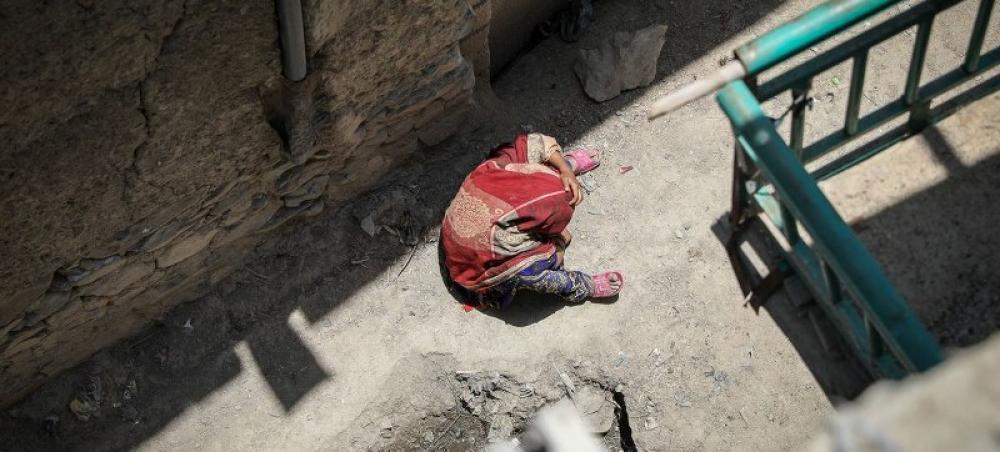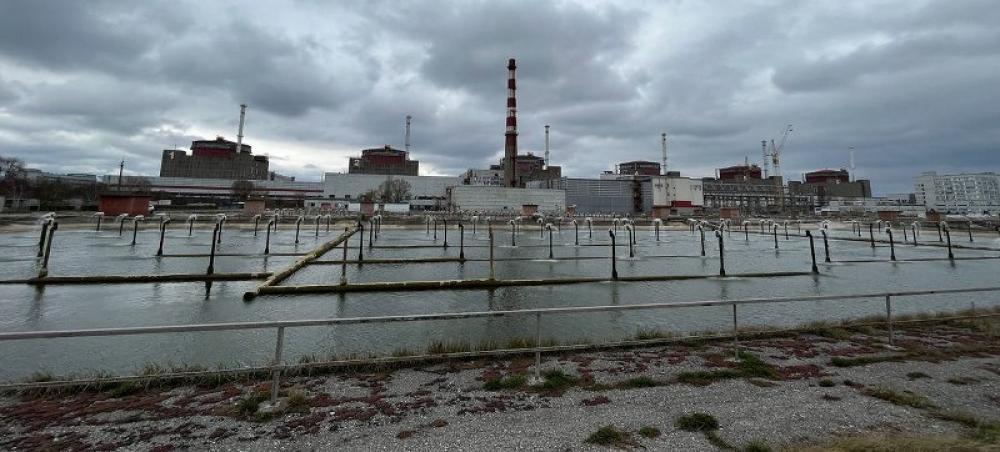Just Earth News | @JustEarthNews | 30 Aug 2018, 05:58 am Print

UN OCHA/Giles Clarke
New York, Parties on both sides of the conflict in Yemen have perpetrated – and continue to perpetrate – possible war crimes and other violations with a “total disregard” for the suffering of millions of civilians, United Nations-appointed human rights investigators said on Tuesday.
Created last year by the Geneva-based UN Human Rights Council, the Group of Eminent Experts on Yemen analyzed violations and abuses of international human rights law, humanitarian law and criminal law, making more than a dozen visits to the war-torn country and neighbouring States.
“The Group of Eminent Experts has reasonable grounds to believe that the Governments of Yemen, the United Arab Emirates and Saudi Arabia are responsible for human rights violations,” panel member Charles Garraway told reporters in Geneva.
Turning to the Houthi opposition forces, which he also described as “de facto authorities”, Mr. Garraway added that the UN panel also has “reasonable grounds to believe, that the de facto authorities are responsible, in the areas over which they exercise effective control, for human rights violations”.
The experts’ findings cover the situation in Yemen from September 2014 to June 2018.
The roots of the conflict date back to uprisings in 2011, but fighting escalated in March 2015, when an international coalition led by Saudi Arabia intervened militarily at the request of Yemen’s President against “Houthi-Saleh” opposition forces – a reference to the former Yemen President, Ali Abdallah Saleh.
In recent years, the conflict has been marked by repeated airstrikes on public spaces including market places, funerals, civilian boats, detention facilities and hospitals.
Just last week, an airstrike in opposition-held Hudaydah governorate, in western Yemen, killed at least 26 children and four women.
The report notes that coalition airstrikes have caused most direct civilian casualties, giving the UN panel “reasonable grounds” to believe that the attacks overstepped key war crimes thresholds.
“Individuals in the Government of Yemen and the coalition, including Saudi Arabia and the United Arab Emirates, may have conducted attacks in violation of the principles of distinction, proportionality and/or proportions, which may amount to war crimes,” Garraway said, adding that a confidential list of names would be handed over to the UN Office of the High Commissioner for Human Rights (OHCHR), pending further investigations.
“More information is needed on some incidents documented by the Group of Experts to establish responsibility,” the UN panel said in a statement, before calling on the Human Rights Council to renew its mandate when it meets next month.
“There is little evidence of any attempt by parties to the conflict to minimize civilian casualties. I call on them to prioritize human dignity in this forgotten conflict,” said Kamel Jendoubi, chairperson of the Group.
According to UN human rights office (OHCHR), since March 2015 up to 23 August 2018, 6,660 civilians were killed and 10,563 injured; however, the real figures are likely to be significantly higher.
Despite official meetings with coalition officials in Riyadh and Oman, Mr. Garraway said that insufficient information had been provided about how airstrikes are planned and carried out.
“If there are systemic flaws in the targeting process, causing civilian casualties beyond what one would expect, then that process needs to be examined,” he said. “And where there are flaws they need to be addressed and amended. We have seen no sign that there has been any attempt to do that.”
According to the UN panel, more than 22 million people remain in need inside Yemen; almost all of them are women and children.
Even before the conflict, Yemen was one of the poorest countries on earth, importing almost all of its food, fuel and medicines. In November 2017, civilians were weakened further by a “total blockade on all the borders of Yemen, preventing all humanitarian aid and commercial trade, including food and fuel, from entering the country”, the Group of Experts’ report noted, adding that restrictions continued into June.
“The Houthi opposition’s role in causing “the majority” of reported civilian casualties in Ta’izz from shelling is highlighted, as well as its role in restricting food and aid access to civilian populations in the city, a strategically important location between Sana’a and the port cities of Aden and Hudaydah”.
- Ukraine intelligence officer gunned down in Kyiv
- One dies in West Bank shopping complex attack
- Pakistan: Nine passengers abducted, shot dead by armed gunmen in Balochistan
- Israel-Hamas conflict: Five IDF soldiers killed, 14 hurt in roadside bomb blast
- Israel-Gaza conflict: IDF eliminates Hamas north Gaza naval chief






